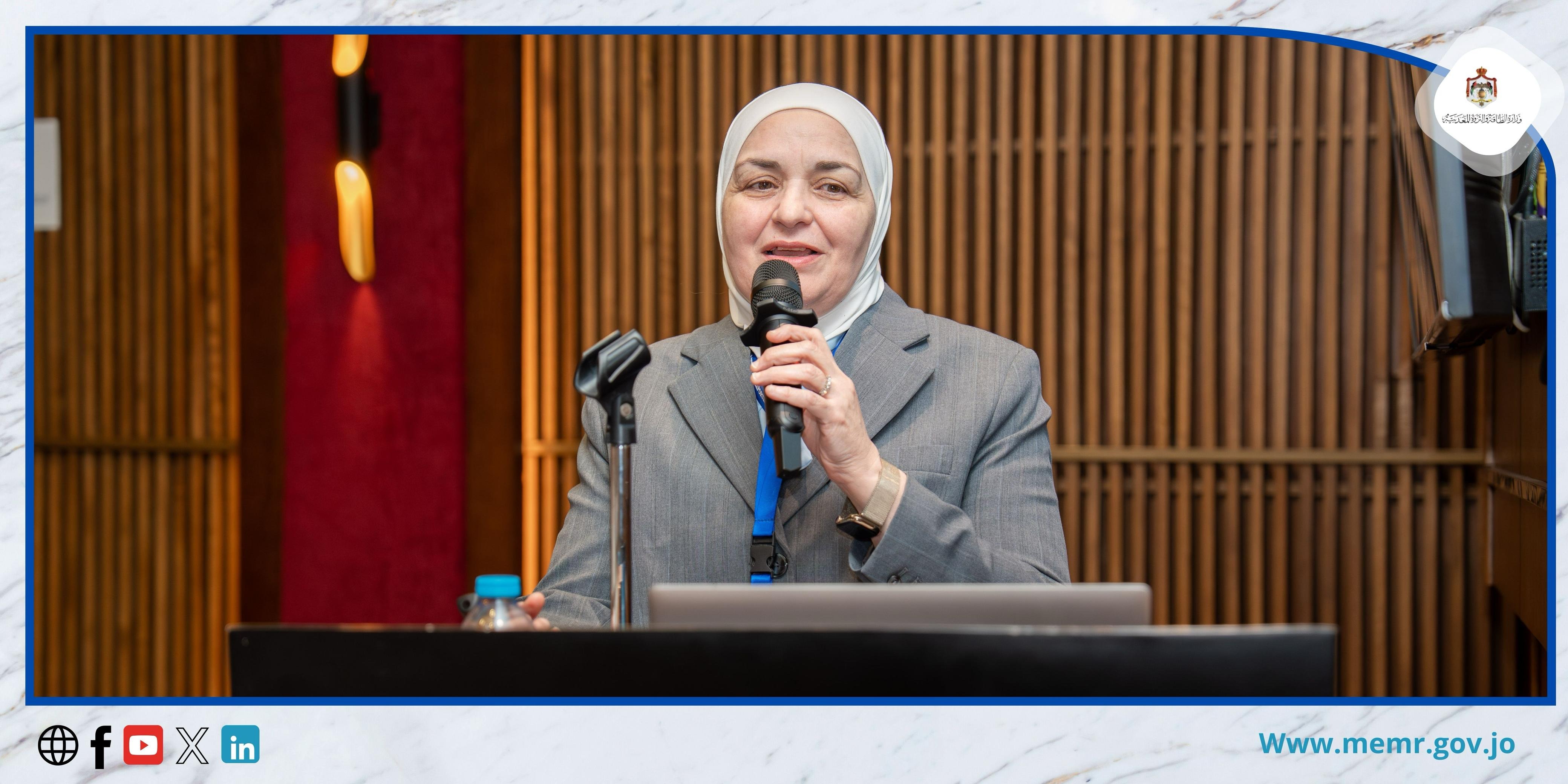Al-Azzam: Developing the Risha Gas Field Is a Step Towards Diversifying Jordan’s Energy Sources

Photo Gallery
Cairo, April 17, 2025 – Engineer Amani Al-Azzam, Secretary General of the Ministry of Energy and Mineral Resources, participated in the 24th meeting of gas experts from member states of the Organization of Arab Petroleum Exporting Countries (OAPEC), and in the seminar titled "Global and Arab Developments in the Field of Hydrogen," both held and organized by OAPEC in Cairo on April 16–17.
During the meeting, Al-Azzam shed light on the current status and future prospects of the hydrogen industry in Jordan. She also presented a working paper titled “Developments in the Gas Industry in Jordan,” in which she outlined a roadmap for the development of the Risha gas field.
Al-Azzam explained that the field represents one of the local energy sources in the Kingdom. It was discovered by the Natural Resources Authority in 1986 and began production in 1989. The field is considered unconventional and is categorized as a tight gas field, meaning it is not easy to produce gas from drilled wells using traditional methods and requires special techniques and significant investments.
She added that the National Petroleum Company has an ambitious plan to gradually increase production from the field. The plan includes contracting an additional drilling rig, constructing a gas processing plant, and building a pipeline to transport the produced gas.
Al-Azzam pointed out that, in order to utilize the expected quantities of natural gas produced from the Risha gas field, it is necessary to establish a natural gas pipeline from the field to the connection point with the Arab Gas Pipeline in Mafraq Governorate, with an approximate length of 320 km. She noted that work is currently underway to conduct the necessary technical and financial studies for the project.
She stated that the government is accelerating its efforts to implement the national program for delivering natural gas to cities and industrial zones in the Kingdom, aiming to provide an alternative and lower-cost energy source for industries operating in those zones. She indicated that market studies have been conducted to attract investments based on natural gas to increase demand for the gas produced from the field, diversify beneficiaries, attract investments, and establish projects for compressing, liquefying, and transporting gas to industries that consume it, and to start using it in transportation.
She affirmed that Jordan’s geographic location, along with the extension of main gas transmission lines from the north to the south of the Kingdom, enhances the opportunities for exporting the surplus of natural gas produced from the field beyond local needs.
Al-Azzam clarified that the comprehensive energy sector strategy for the period 2020–2030 included several recommendations regarding natural gas, the most important of which are: continuing to meet the Kingdom's needs from currently available sources, which will cover demand until 2035; working on the development of the Risha gas field; attracting international companies to invest in the exploration of conventional and unconventional gas in open areas; and maintaining the option of importing liquefied natural gas through Sheikh Sabah Port in Aqaba to ensure energy supply security.
Al-Azzam noted that work is still ongoing to implement the project for constructing an onshore regasification unit, and a floating storage unit has been leased. The implementation is expected to be completed during the fourth quarter of 2026. She also added that work is currently underway to approve a Gas Law in the Kingdom for the first time.